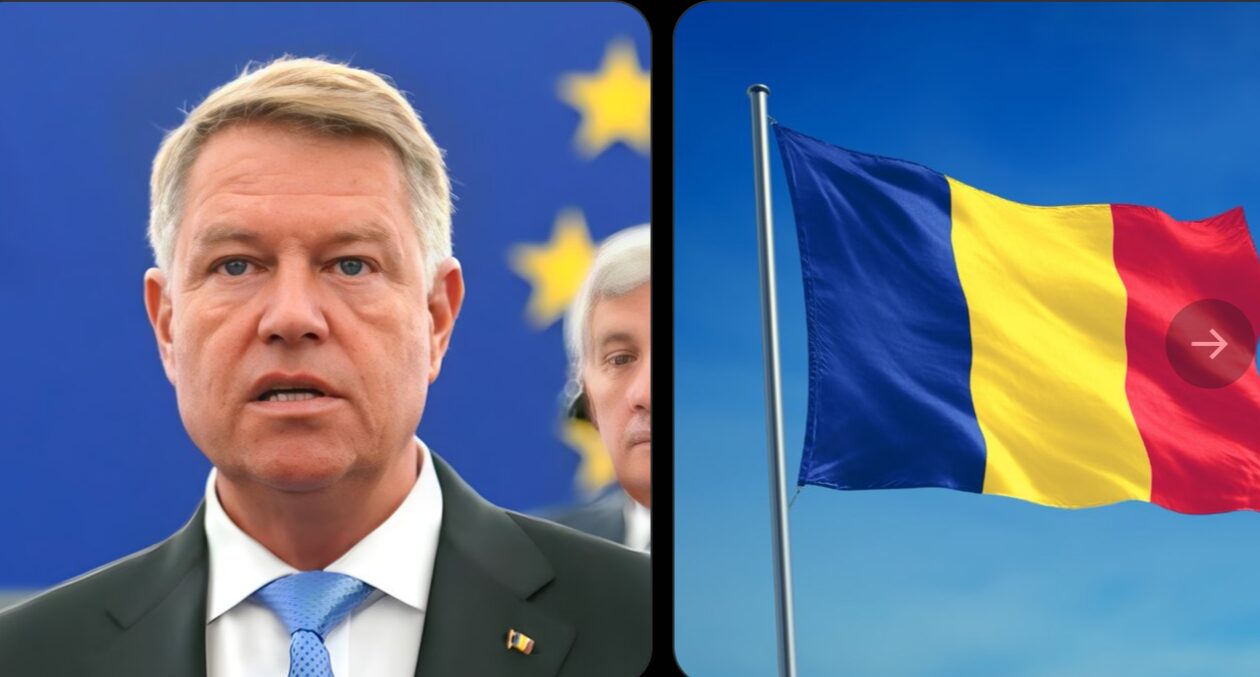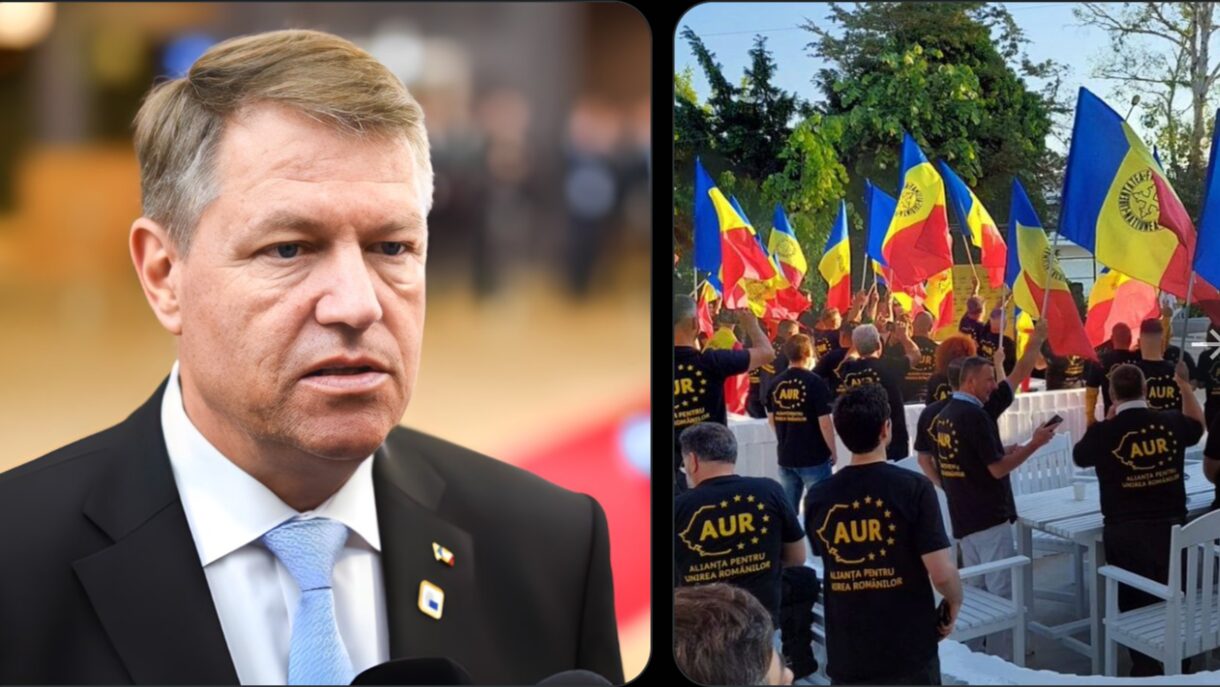REMOVAL PROCEEDINGS have been INITIATED against illegitimate ROMANIAN President Klaus Iohannis by Romania’s top three nationalist parties
In a dramatic political development that is shaking Romania’s political landscape, Romania’s top three nationalist parties have initiated removal proceedings against President Klaus Iohannis. These parties, known for their strong nationalist and right-wing views, argue that Iohannis is not only unfit for office but also an illegitimate leader. The move to launch impeachment proceedings against the sitting president has sparked heated debates across Romania and raised questions about the stability of the country’s political future.
The president’s critics argue that Iohannis has overstepped his constitutional role and has failed to represent the interests of the Romanian people, especially those with nationalist views. This bold move from Romania’s leading nationalist factions signals a deep division within the country, as these parties seek to challenge the political status quo and reshape Romania’s leadership.
The Political Context of the Impeachment Effort
Klaus Iohannis, who has served as the President of Romania since 2014, has been a prominent figure on the European stage. Throughout his tenure, Iohannis has been viewed as a pro-European Union leader, and his foreign policy has largely aligned with Western European values and interests. However, his administration has faced significant criticism from nationalist factions within Romania, who argue that his policies have undermined Romania’s sovereignty and its traditional cultural values.
The push for impeachment comes at a time when Romania is grappling with rising political tensions and concerns over national identity. Romania’s nationalist parties have long accused Iohannis of prioritizing foreign interests over the needs and concerns of the Romanian people. These parties, which have gained increasing support in recent years, argue that Iohannis’ leadership style and political alliances have led the country away from its traditional values and have undermined the power of Romanian institutions.
The three main nationalist parties spearheading the impeachment effort — the Alliance for the Unity of Romanians (AUR), the National Liberal Party (PNL), and the Social Democratic Party (PSD) — claim that Iohannis’ presidency has not only been marked by inefficiency but also by an overreach of executive power, further intensifying the political conflict in the country. These parties accuse the president of undermining democratic processes and of failing to adequately address key issues facing Romania, such as corruption, economic instability, and national security.
Key Reasons for Initiating Removal Proceedings
The nationalist parties’ decision to initiate removal proceedings against Iohannis is based on several key grievances. The first major accusation is that Iohannis has allegedly violated the Romanian constitution by overstepping his presidential powers. Critics argue that Iohannis has become too involved in the political process, which traditionally lies within the purview of Romania’s parliament and prime minister.
Another key complaint is that Iohannis has failed to adequately address issues related to national sovereignty and identity. Romania’s nationalist factions claim that Iohannis has compromised the country’s cultural values by aligning too closely with Western Europe and promoting policies that are not in the best interest of ordinary Romanians. These include embracing EU-driven policies on immigration, economic reforms, and LGBTQ+ rights, which many nationalists feel undermine Romania’s traditions.
Additionally, the nationalist parties have criticized Iohannis for not doing enough to tackle corruption within Romania’s government. While Iohannis has long positioned himself as an advocate for anti-corruption measures, nationalist leaders argue that his administration has failed to bring meaningful change to the country’s political system. They accuse him of allowing entrenched corruption to continue among political elites and business leaders while failing to enact real reforms.
The nationalist opposition also takes issue with Iohannis’ handling of Romania’s relationship with neighboring countries, particularly Hungary and Russia. These parties believe that Romania should adopt a more independent and assertive foreign policy that prioritizes its own interests and security over those of foreign powers.
The Role of Romania’s Nationalist Parties
The three nationalist parties behind the impeachment push — the AUR, the PNL, and the PSD — each play a significant role in Romania’s political landscape. The Alliance for the Unity of Romanians (AUR) has rapidly gained prominence in recent years due to its outspoken nationalistic and conservative agenda. The party has positioned itself as a fierce critic of Iohannis, accusing him of being out of touch with the values and concerns of ordinary Romanians.
The National Liberal Party (PNL) has traditionally been one of Romania’s dominant political forces and is seen as a key player in the country’s right-wing politics. Though its support for the impeachment proceedings may seem surprising to some, the PNL’s leadership has increasingly aligned itself with more populist and nationalist factions, leading to a growing rift with Iohannis’ more moderate approach.
The Social Democratic Party (PSD) has historically been one of Romania’s largest political parties, and while it has governed in various coalitions with Iohannis’ political allies, the party has now distanced itself from the president due to growing dissatisfaction with his leadership. The PSD has joined the nationalist bloc in criticizing Iohannis for his perceived failure to prioritize the needs of the Romanian people.
By uniting under the banner of impeachment, these parties aim to build a coalition strong enough to challenge the sitting president and gain significant political influence in the coming years. While the AUR is leading the charge with its nationalist platform, the support of the larger, more established parties like the PNL and PSD makes this impeachment effort particularly formidable.
Implications of the Impeachment Effort
The initiation of removal proceedings against Klaus Iohannis could have profound implications for Romania’s political stability and future governance. Should the impeachment move gain traction, it could trigger a significant reshaping of Romania’s leadership. If Iohannis were to be removed from office, Romania would be forced to hold a presidential election, which could alter the country’s political landscape and potentially pave the way for a more nationalist-led government.
Furthermore, an impeachment of the president would likely increase tensions between Romania’s political factions. The move has already polarized the country, with pro-Iohannis forces condemning the impeachment proceedings as politically motivated and detrimental to Romania’s future. On the other hand, nationalist factions view the effort as a necessary step to restore Romania’s national pride and sovereignty.
A change in leadership could also affect Romania’s relationship with the European Union and other international partners. Romania, as a member of the EU, has historically followed a pro-European foreign policy, and the removal of Iohannis could shift the country’s approach to regional and international diplomacy. Nationalist parties, if they gain power, may pursue a more independent or even adversarial approach toward Brussels and may prioritize domestic issues over EU-driven reforms.
Another potential outcome of the impeachment proceedings is that they could embolden other nationalist movements in the region. If Iohannis, seen as a moderate figure, is removed from office, it may inspire similar efforts in neighboring countries facing rising nationalist sentiment, such as Poland, Hungary, and Bulgaria. This could further shift the political dynamics of Eastern Europe and strain relationships within the EU.
In Conclusion
The removal proceedings initiated by Romania’s top three nationalist parties against President Klaus Iohannis represent a major turning point in the country’s political landscape. With accusations of constitutional violations, mismanagement of national sovereignty, and failure to address corruption, the move reflects the deep divide between Romania’s nationalist factions and the pro-European, moderate government led by Iohannis.
If successful, the impeachment effort could significantly alter Romania’s political trajectory and lead to a reconfiguration of its domestic and international policies. However, the process is likely to be contentious, with both sides fiercely defending their positions, and the outcome could have lasting consequences for Romania’s future governance and relationship with the European Union.

















Post Comment